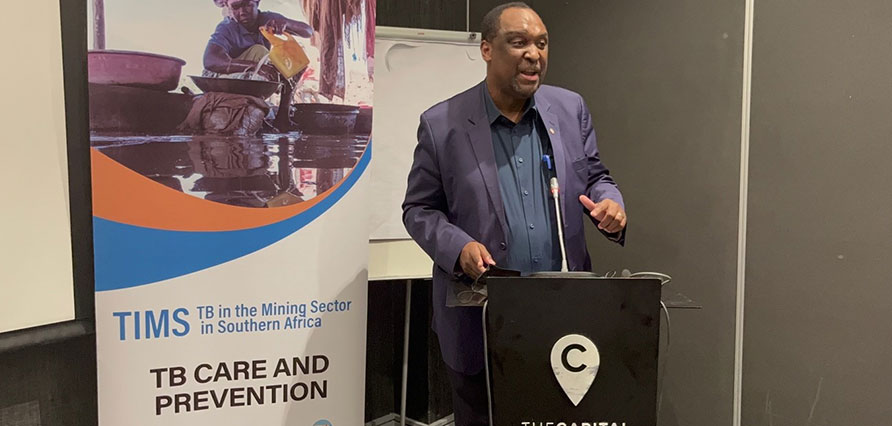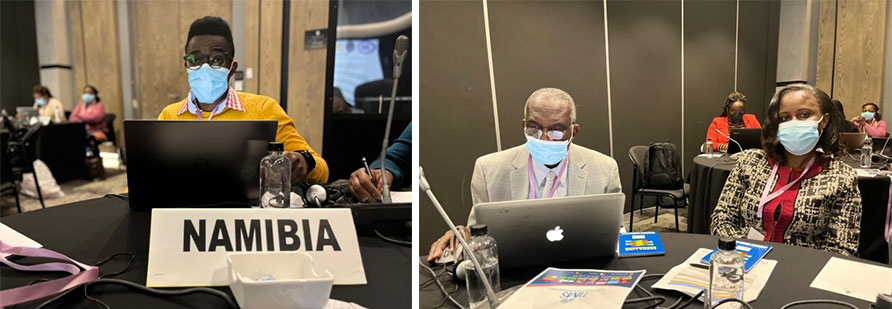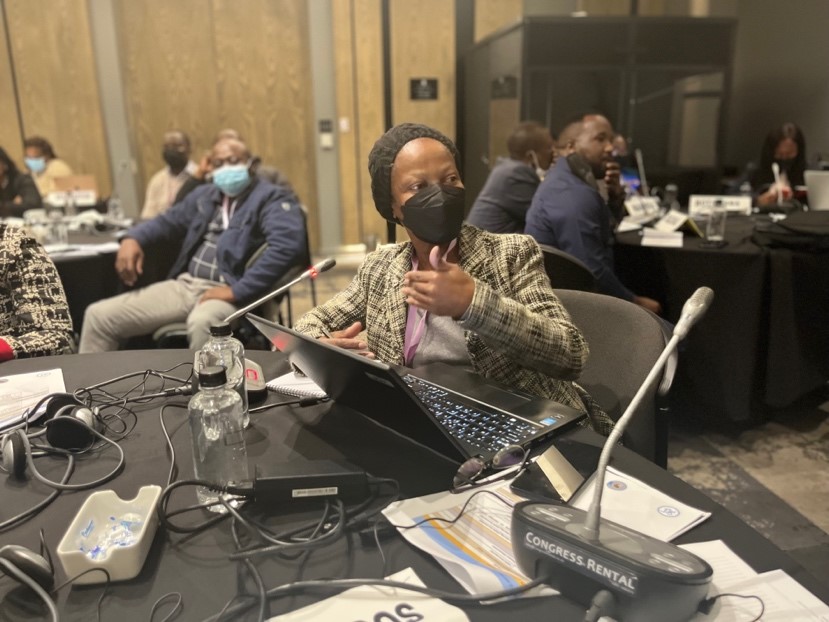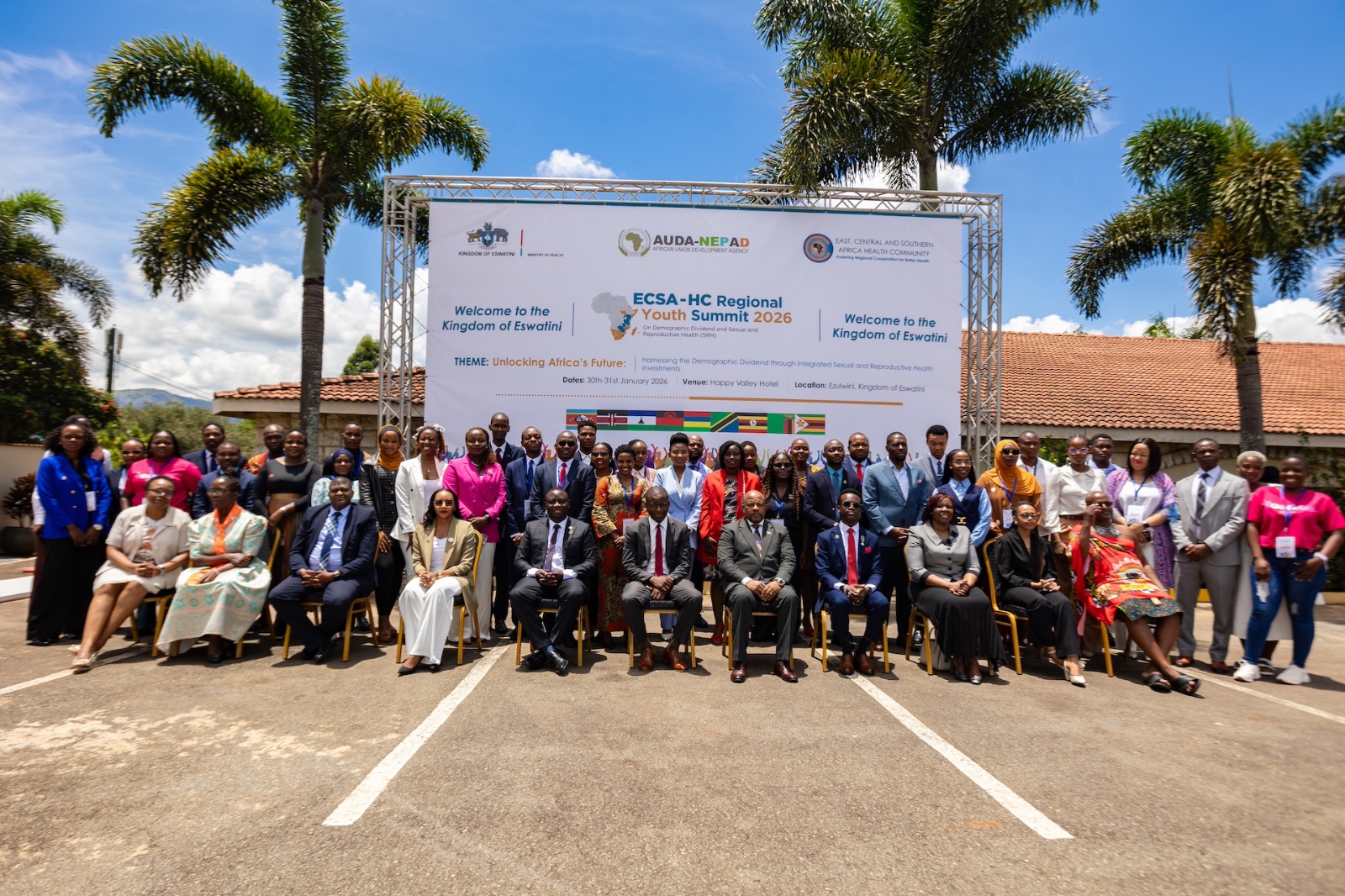ECSA-HC has successfully concluded the 76th Health Ministers Conference (3–5 Feb 2026) in Ezulwini, Kingdom…
TIMS phase 3 project shines light on the cross-border referral systems

TIMS 3 Project which is implemented by ECSA-HC has had a successful two-day meeting on sensitizing National TB program managers from 10 SADC Countries on Cross-border referral systems. The meeting took place on the 14 and 15th of
July in Johannesburg, South Africa with representation of Botswana, Comoros Lesotho, Namibia, Malawi, Madagascar, Zambia, Zimbabwe, Tanzania and South Africa.
The main objectives of the meeting were to reflect on the two phases of the TIMS project and the progress made in establishment of the CBRS, challenges and lessons learnt during the pilot roll out phase of the system and
To come up with a work plan that speaks to development of a framework/ standard operating procedures on cross border sharing of patient information.
To set course of the meeting a representative from the SADC Secretariat Dr. Willy Hamis made emphasis on the commitment that the SADC Heads of state have made through the signing of the SADC Declaration on the TB in the Mines in which he highlighted the two goals that were regional integration and CBRS. Further Countries were reassured on the issues of client information security and informed that servers are hosted and housed at the SADC secretariat and that the issue in question that needs deliberation is patient referrals rather than data sharing.

South Africa being the host country officiated the meeting through the Chief Director, TB Control and management-Dr. Norbert Ndjeka who in his opening remarks reminded the countries on how the tb burden is still an issue in the southern region and why as a region they needed to have collective efforts in eliminating TB by 2030. “TB kills more than HIV and Malaria together. However, the investment in TB is not in line with the mortality rate of TB. Poor nutrition, HIV, alcohol use and abuse continue to be contributing factors of TB risk. It is important to extend what is happening in the general public regarding TB and extending the same to the mining sector” said Dr. Norbert.

Each Country was given a platform to share lessons that they encountered during the pilot phase, this session brought a lot of light to the key areas that the Countries are struggling in implementation of the CBRS and among the top mentioned challenges were COVID-19 the critical stage of the CBRS fell in the pandemic period that caused disruption in service delivery leading to some of the health facilities shutting down as NTPs were unable to support the roll out of the CBRS system because all staff was redirected to support issues of Covid,
rotation of staff and lack of refresher trainings to run and monitor the CBRS systems, limited diagnostics centers and common treatment protocols within the countries.

 The two-day meeting was of great success as countries were able to agree on the way forward in the success of implementing the CBRS. From the meeting it was made clear that Countries shall not be sharing client data from one country to another which was a major setback in the last phases of the TIMS Project that required a data sharing agreement which could not come into effect. It has now been agreed that the CBRS shall focus on referring key populations that have been diagnosed with TB and other occupational lung diseases from one country to another so as they can continue treatment from where they started in the country of origin. NTP managers from the meeting pointed out that the CBRS is a very important tool that should be enhanced and sustained if countries need to end TB in the region. Countries that have piloted the system have attested to its efficiency in storage of client information and patient tracking.
The two-day meeting was of great success as countries were able to agree on the way forward in the success of implementing the CBRS. From the meeting it was made clear that Countries shall not be sharing client data from one country to another which was a major setback in the last phases of the TIMS Project that required a data sharing agreement which could not come into effect. It has now been agreed that the CBRS shall focus on referring key populations that have been diagnosed with TB and other occupational lung diseases from one country to another so as they can continue treatment from where they started in the country of origin. NTP managers from the meeting pointed out that the CBRS is a very important tool that should be enhanced and sustained if countries need to end TB in the region. Countries that have piloted the system have attested to its efficiency in storage of client information and patient tracking.


